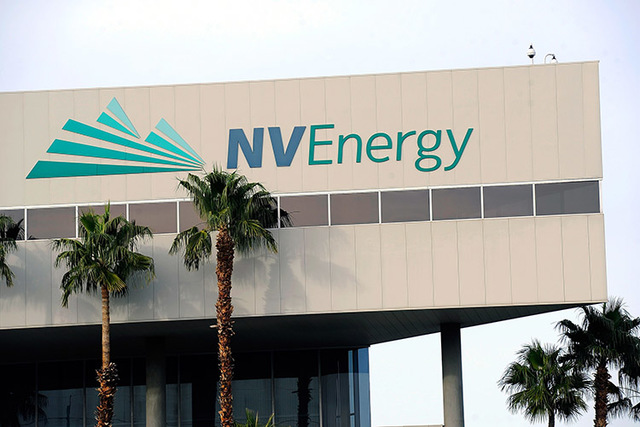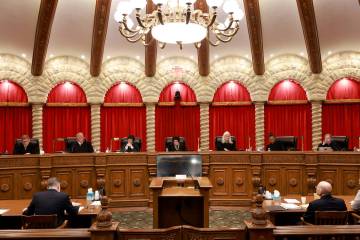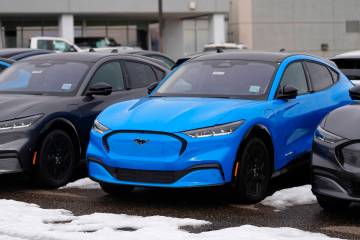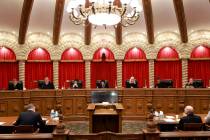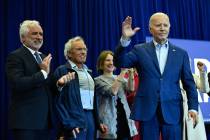Question 3 allows Nevadans to choose their energy future
Question 3 on the Nov. 8 general election ballot allows Nevada voters to weigh in on their energy future.
Question 3 would amend the state constitution to open Nevada energy markets to competition, ending the monopoly held by NV Energy.
Even if voters say yes, it will take several years before consumers could shop for the best energy deals. The measure would have to pass a second time, in 2018, and then be enacted by the Legislature before it could take effect.
A poll conducted for the Review-Journal Sept. 27-29 showed that likely Nevada voters overwhelmingly support Question 3, with 68 percent in support and 14 percent opposed.
The measure is backed by Nevadans for Affordable Clean Energy Choices and was qualified for the ballot with funding almost exclusively from casino operator Las Vegas Sands Corp.
Several major companies, including the data storage company Switch, electric car maker Tesla and MGM Resorts International, are supporting the measure.
The Nevada State AFL-CIO opposes the measure, arguing the change won’t be a good deal for residential utility customers and should not be made a part of the state constitution, where it would be difficult to change if problems arose.
NV Energy is neutral on the question. The utility would retain control of the state’s electricity distribution network, such as transmission lines, if the market was opened to competition.
Although the proposal is commonly referred to as deregulation, supporters argue the word is a misnomer.
Proponents argue that under Question 3, the safety, reliability and quality of Nevada’s energy will continue to be regulated by the state Legislature, the Nevada Public Utilities Commission and the federal government.
Supporters say consumers will benefit from competition.
According to the ballot question sponsor, nearly one-third of Americans have the ability to choose their electricity suppliers, and data from states with energy choice show lower electricity costs across all sectors — residential, commercial and industrial — with a nearly 20 percent cost savings for consumers.
Supporters say that if passed, the Energy Choice Initiative would be one of the first in the West to create retail energy choices, supporting greater innovation, job creation and new renewable energy technologies.
Opponents argue that open markets have not produced lower prices for residents or businesses in states that have tried it. The argument against Question 3 notes that utilities plan 20 years ahead for reliable service, and the measure would take away that safety net, exposing ratepayers to unpredictable energy markets.
A report released in April 2015 by Paul Zummo, manager of policy research and analysis at the American Public Power Association, found that electricity rates are higher in deregulated states compared with regulated states.
Citing information from the U.S. Energy Information Administration, deregulated states reported average revenue per kilowatt hour of electricity in 2014 at 12.7 cents compared to 9.4 cents for regulated states, the report found.
The numbers varied from year to year, but the comparison held true since 1997.
There is also evidence that residential customers of NV Energy, doing business as Nevada Power in Southern Nevada, are doing better with their monopolistic power rates than consumers in other states.
The U.S. Energy Information Administration has data that show Nevada has the second-lowest increase in residential electricity prices of the 48 contiguous states from 2002 to 2013 at just over 25 percent.
The Review-Journal is owned by the family of Sheldon Adelson, chairman and CEO of Las Vegas Sands Corp.
Contact Sean Whaley at swhaley@reviewjournal.com or 775-461-3820. Follow @seanw801 on Twitter.



